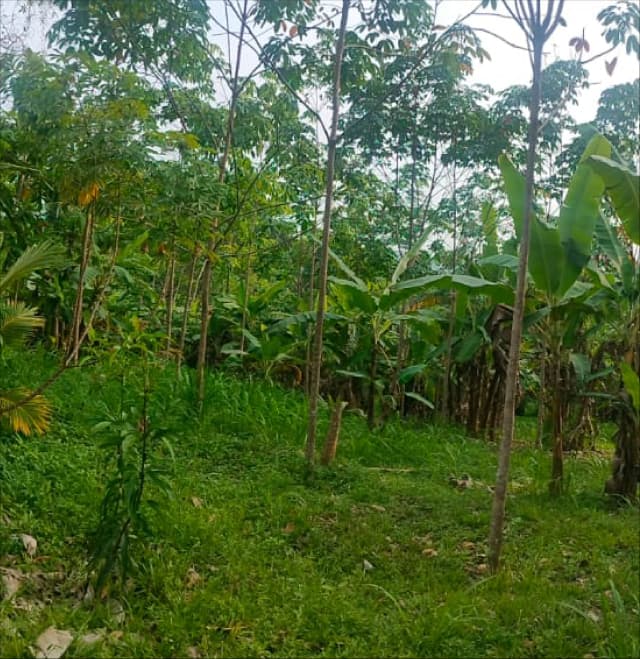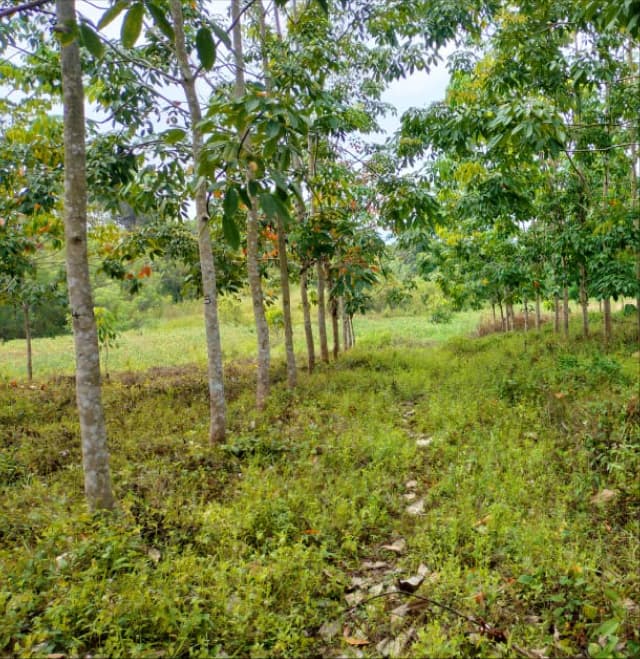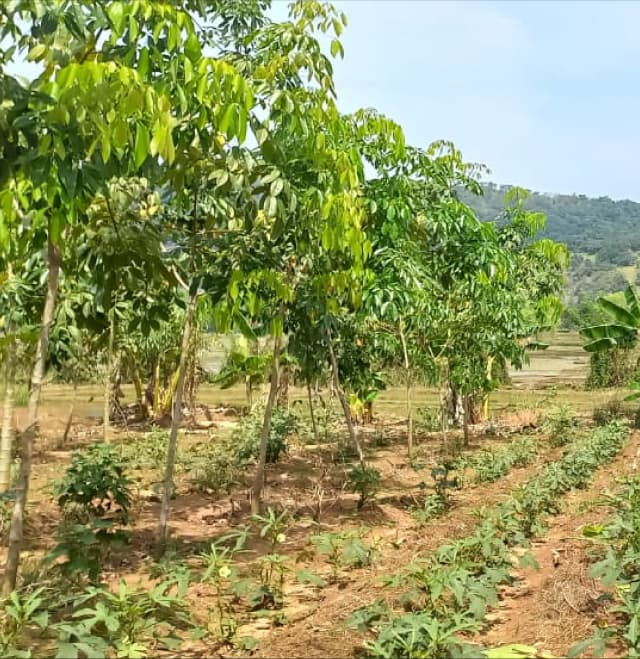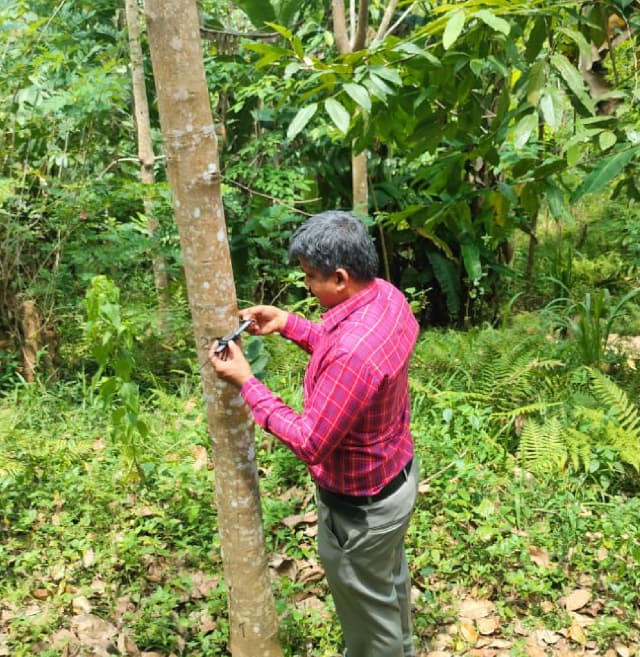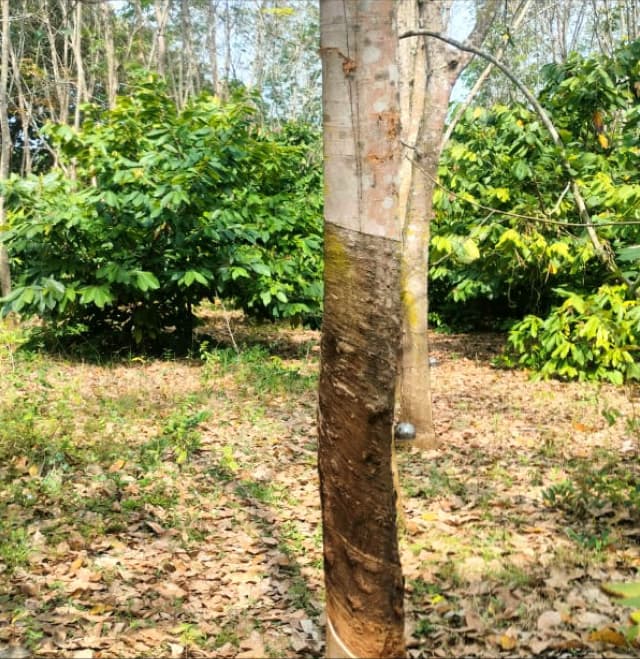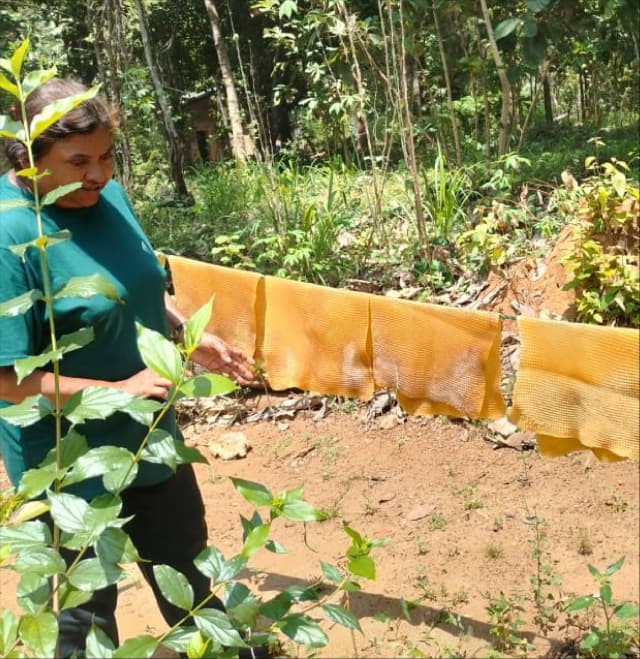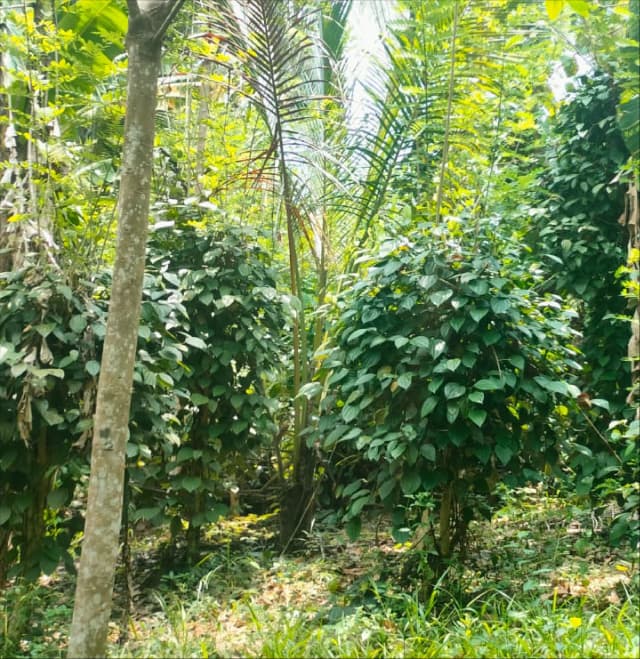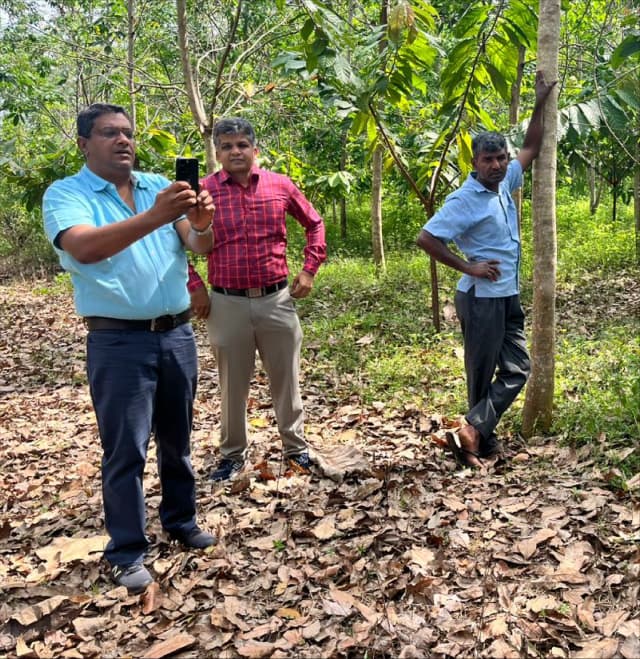Projects/Nature Based Solutions/AFOLU/ARR/Community-Led Agroforestry in the Eastern and Uva Provinces of Sri Lanka
Community-Led Agroforestry in the Eastern and Uva Provinces of Sri Lanka
Multi-crop Agroforestry Project – Ampara and Monaragala Districts,
Sri Lanka.Climate Impact: The project is expected to sequester approximately 2 million tCO₂e over 40 years, with an average annual sequestration of 51,090 tCO₂e, contributing significantly to climate mitigation.
Rural Development: It targets poverty alleviation and community empowerment by engaging smallholder farmers in Ampara and Monaragala Districts, offering them a sustainable livelihood through multi-crop cultivation.
Environmental Co-benefits: Multicropping offers ecosystem services such as soil conservation, groundwater protection, and biodiversity enhancement, while being low-input (minimal need for fertilizers and pesticides).
This reforestation initiative aims to support rural development and poverty alleviation in Sri Lanka by establishing multi-crop plantations on 3,000 hectares of non-forested, degraded lands in the Ampara and Monaragala Districts. Initiated by ProClime in cooperation with the Rubber Research Institute of Sri Lanka (RRISL), under the Ministry of Plantation Industries, the project engages smallholder farmers and promotes sustainable land use. Planting began in 2017 and was completed by 2021, using rubber clones adapted to local conditions. In addition to capturing carbon, the project provides significant environmental benefits such as improved soil conservation, enhanced groundwater management, and increased biodiversity. It also empowers rural communities through active participation, improved infrastructure, and the creation of sustainable livelihoods. Multi-crop plantations are designed as low-input, self-sustaining ecosystems that contribute to long-term ecological and economic resilience. The Verified Carbon Units (VCUs) generated through the project will be jointly held by ProClime and RRISL.

Rubber, Cinnamon and Cocoa based Afforestation, Reforestation, and Revegetation (ARR) projects in Sri Lanka combine ecological restoration with rural development. By planting rubber trees on degraded, non-forested lands, these initiatives restore soil health, enhance biodiversity, and serve as long-term carbon sinks due to rubber’s high biomass and 30–40 year growth cycle. Scientific approaches guide the selection of resilient, high-yielding clones suited to local conditions, while sustainable practices reduce dependency on fertilizers and pesticides. These plantations help mitigate climate change by capturing and storing carbon in both biomass and soil. Beyond environmental benefits, the projects uplift rural communities, particularly in Ampara and Monaragala, by involving smallholder farmers in the cultivation process. Participants gain access to training, resources, and support for income diversification through intercropping and eco-friendly enterprises. This integrated approach ensures ecological resilience and lasting community impact, making multi-crop ARR projects a powerful tool for both climate action and sustainable rural development in Sri Lanka.
Rubber based Farming Systems
Author : Rubber Research Institute of Sri Lanka
https://www.rrisl.gov.lk/content/files/downDoc/12.%20Rubber%20based%20Farming%20System.pdf
Establishment of Rubber in Dry Climate
Author : Rubber Research Institute of Sri Lanka
https://www.rrisl.gov.lk/content/files/Advisory%20Circulars/17.%20Establishment%20of%20Rubber%20in%20Dry%20Climates.pdf
